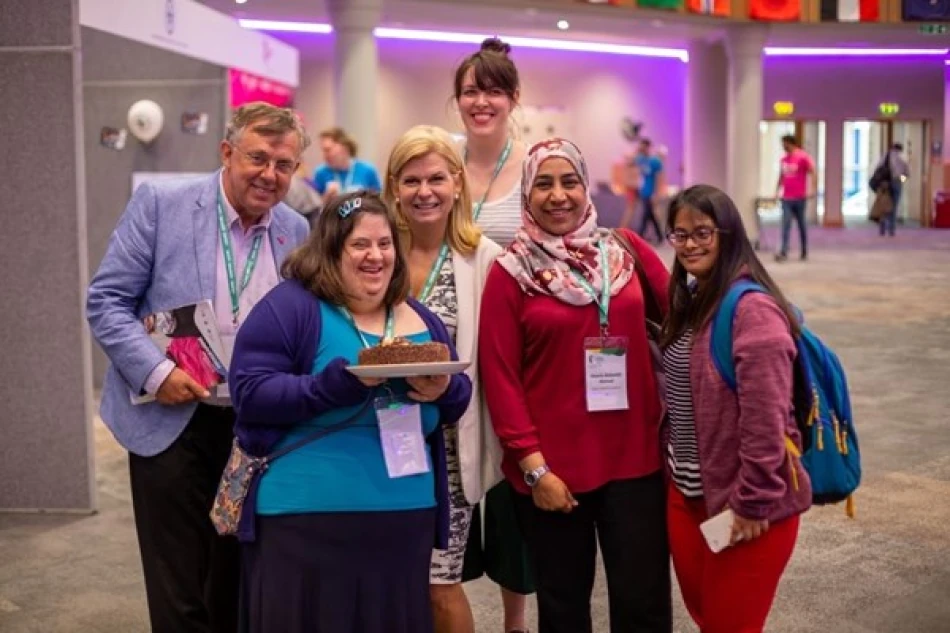
Global 'We Are Containment' Initiative Unites 74 Nations in Collaborative Effort
Sharjah Positions Itself as Global Hub for Disability Rights with Landmark 2025 Conference
The UAE emirate of Sharjah is set to host one of the world's largest gatherings on intellectual disability inclusion, bringing together representatives from 74 countries to advance policies that could reshape how nations approach disability rights. The "We Are Inclusion" Global Conference 2025, launching Monday at Sharjah Expo Centre, signals the UAE's growing ambition to lead international humanitarian initiatives beyond its traditional economic diplomacy.
A Strategic Soft Power Play
Under the patronage of Sheikh Dr. Sultan bin Muhammad Al Qasimi, Ruler of Sharjah, the three-day conference represents more than humanitarian goodwill—it's a calculated move to position the UAE as a progressive voice on social issues. With 152 speakers, 134 self-advocates, and over 500 participants, the gathering rivals established forums in Geneva or New York in scale and ambition.
The timing is significant. As global attention focuses on the UAE's rapid economic transformation and its hosting of major international events, Sharjah's emphasis on intellectual disability inclusion offers a softer counternarrative to the region's image as purely business-focused.
From Local Initiatives to Global Standards
The Policy Translation Challenge
The conference's core promise—translating community initiatives into executable national policies—addresses a persistent gap in disability rights implementation worldwide. While many countries have signed the UN Convention on the Rights of Persons with Disabilities, fewer have created comprehensive frameworks for intellectual disability inclusion.
Sharjah City for Humanitarian Services, the organizing body, has spent years building local programs that could serve as templates for other nations. The emirate's approach combines traditional Arab concepts of community support with modern policy frameworks—a model that could appeal to developing nations seeking culturally sensitive solutions.
The Self-Advocacy Revolution
The inclusion of 134 self-advocates—individuals with intellectual disabilities speaking for themselves—marks a shift from the traditional charity model to one of empowerment and self-determination. This approach mirrors successful movements in countries like Australia and Canada, where self-advocacy has driven significant policy changes.
Regional Competition and Global Implications
Sharjah's conference comes as regional rivals Saudi Arabia and Qatar also expand their humanitarian portfolios. Saudi Arabia's Vision 2030 includes disability inclusion goals, while Qatar's World Cup highlighted accessibility initiatives. However, Sharjah's focus specifically on intellectual disabilities—often overlooked in favor of physical accessibility—could carve out a distinctive niche.
The 59 planned sessions, including nine parallel tracks, suggest an attempt to create actionable outcomes rather than symbolic declarations. If successful, the conference could establish Sharjah as an annual destination for disability rights advocates, similar to how Dubai became synonymous with fintech innovation.
The Economic Dimension
Beyond moral imperatives, the conference reflects growing recognition that inclusive societies drive economic growth. Studies by the International Labour Organization show that countries with robust disability inclusion policies see measurable GDP benefits through increased workforce participation and reduced care costs.
For the UAE, which faces demographic challenges as its population ages, creating inclusive systems now could prevent future social and economic pressures. The conference's emphasis on family empowerment also aligns with the country's focus on social cohesion amid rapid modernization.
Measuring Success Beyond Headlines
The true test of Sharjah's initiative will come in the months following the conference. Previous international disability forums have produced ambitious declarations but limited concrete change. The organizers' promise of a comprehensive action roadmap suggests awareness of this challenge, but implementation will require sustained political will and funding.
If Sharjah can demonstrate measurable policy changes stemming from the conference—whether in participating countries or within the UAE itself—it could establish a new model for humanitarian diplomacy that combines regional leadership with global impact. The emirate's success could also influence how other Gulf states approach social policy, potentially accelerating regional progress on inclusion and human rights.
Most Viewed News

 Layla Al Mansoori
Layla Al Mansoori






